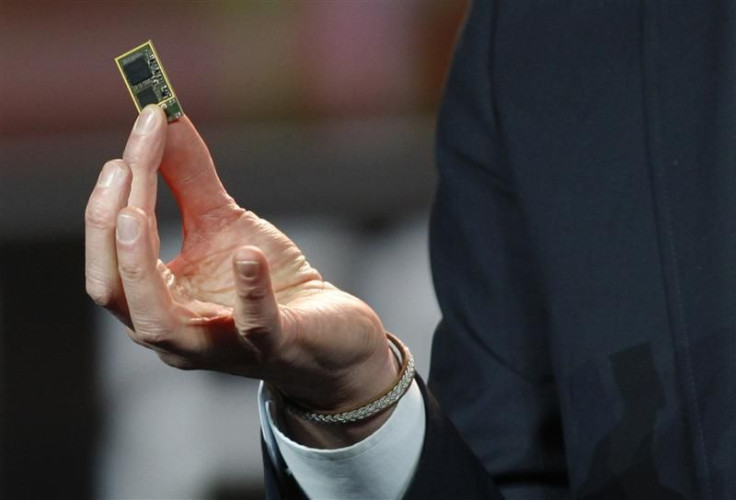Slowdown Hits Ericsson Profits, Shares Dive

(REUTERS) -- World No.1 mobile equipment maker Ericsson saw its profit halve in the fourth quarter as the global economic slowdown hit demand, and forecast network operators would remain cautious on spending in the months ahead.
With earnings falling below all forecasts in a Reuters poll, Ericsson shares dropped 15 percent in early Wednesday trading. Smaller rival Alcatel-Lucent also fell 8 percent.
It is hard to find anything positive, said Jyske Bank analyst Robert Jakobsen. The company has indicated there would be a slowdown, but this is much worse than expected.
Telecoms operators invested heavily through most of 2011 to upgrade networks to cope with surging data traffic from smartphones and tablets and some slowdown had been anticipated, particularly in the United States.
Ericsson said it had seen increased caution from operators in the fourth quarter due to weak macroeconomic conditions which hit its key network unit, where sales fell 9 percent year-on-year. The effects were most felt in the United States and Russia.
At the same time, the impact of lower margin contracts in Europe continued to press on Ericsson's profitability.
Short-term, we expect operators to continue to be cautious with spending, reflecting factors such as macro economic and political uncertainty, said Ericsson chief executive Hans Vestberg.
We will continue to execute on our strategy which means that the business mix, with more coverage and network modernization projects than capacity projects, will prevail short-term, he added.
Ericsson is taking on lower-margin work in a bid to gain market share and hopes this will pay off when the next round of network upgrades comes through.
John Strand, founder of Danish telecoms consultancy Strand Consult, said that was the right strategy in a market increasingly looking like the crisis-stricken euro zone.
The question is who has the role of Greece, Spain, Portugal and Italy? Alcatel-Lucent and Nokia Siemens Networks are the two candidates. Neither of them is Greece, but both are in a bad situation in a tough market, he said.
Mobile network equipment makers, and in particular Alcatel-Lucent and Nokia Siemens Networks, have been hit hard by the entrance of Chinese vendors Huawei and ZTE who have helped to drive down equipment prices.
Nokia Siemens will report results on Thursday.
WEAK NUMBERS
Earnings before interest and tax, excluding Ericsson's loss-making joint ventures but including restructuring charges, were 4.1 billion Swedish crowns ($605 million), missing all forecasts in a Reuters poll, which ranged from 5.8 billion to 9.4 billion.
Sales, at 63.7 billion crowns, were also well below the forecast of 67.2 billion, as was Ericsson's closely watched gross margin which came in at 30.2 percent against the projected 33.7 percent.
At 3:50 a.m. ET, Ericsson shares were down 14.3 percent at 58.70 Swedish crowns, the biggest fall by a European blue-chip stock.
Although core profit missed even the lowest forecast in the poll, the worsening situation is not a complete surprise.
Ericsson had said previously that operators were becoming more cautious and flagged it had sacrificed short-term profitability for market share and long-term gains.
Some smaller equipment vendors, such as Juniper Networks Inc and Acme Packet Inc, have also issued profit warnings in recent weeks, blaming slower spending at big U.S. carriers like Verizon Communications Inc and AT&T.
($1 = 6.7810 Swedish crowns)
(Additional reporting by Olof Swahnberg, Christopher Jungstedt, Veronica Ek, Johannes Hellstrom and Tarmo Virki; Editing by Mark Potter)
© Copyright Thomson Reuters 2024. All rights reserved.











